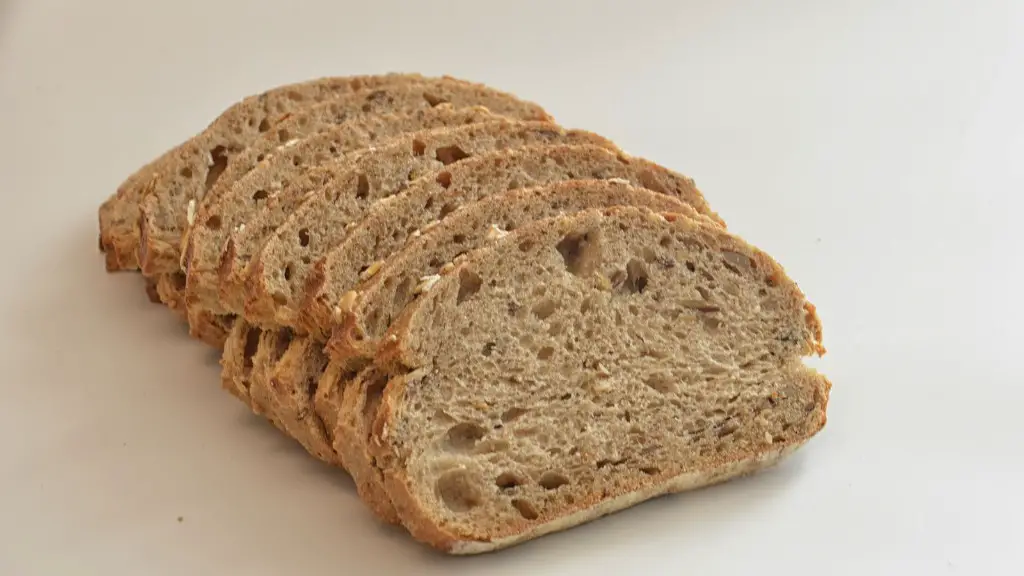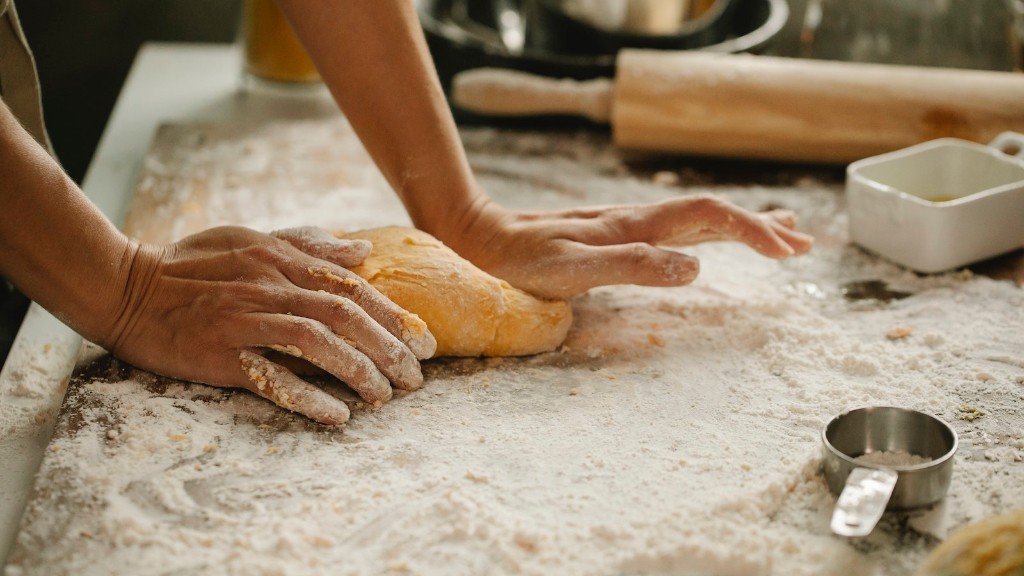In recent years, there has been a resurgence in popularity of specialty bakeries. Consumers are interested in purchasing unique, handmade items that are not available at large grocery stores. As a result, opening a specialty bakery can be a lucrative business venture. However, it is important to note that specialty bakeries require a significant amount of planning and preparation. In this article, we will outline the steps necessary to open a successful specialty bakery.
The first step is to develop a business plan. This will help you determine the costs associated with opening and operating a bakery. Next, you will need to obtain the necessary licenses and permits from your local government. Once you have secured the funding for your business, you will need to find a suitable location for your bakery. Finally, you will need to purchase the necessary equipment and supplies.
How profitable is owning a bakery?
The average bakery profit margins are low. A typical margin for a bakery is between 4% and 9%. The reason that bakeries have such small margins is due to competition. To sell your products, you need to offer them at prices that are market competitive yet still allow you to make money.
The average startup cost to open a bakery is between $10,000 and $50,000. This is lower than the average cost of opening a restaurant, largely due to the reduced need for employees, seating, and inventory for most bakery businesses.
Opening a bakery can be a great business venture, especially if you have a passion for baking. With a relatively low startup cost, it can be a great way to get your business off the ground. However, be sure to do your research and create a business plan before diving in.
What mistakes do startup bakeries make
When starting your bakery business, it is important to avoid making common mistakes in order to be successful. Some of the top 10 mistakes to avoid include:
1. Do not over-promise and under-deliver – customers will be disappointed if they do not receive what they were expecting.
2. Give customers what they want, not what you think they want – it is important to listen to feedback and act on it.
3. Offer low prices for high-quality products – this will help attract and keep customers.
4. Make sure your food is fresh – customers will not return if they are not satisfied with the quality of the food.
Apple pie, chocolate chip cookies, bagels, cream puffs, cornbread, blueberry muffins, whoopie pie, and red velvet cake are some of the most popular baked goods. These desserts are often made from scratch using quality ingredients, and they’re perfect for satisfying a sweet tooth.
What are the weaknesses of a bakery?
A poorly operated bakery is one that is not run efficiently, wasting both ingredients and labor. This in turn increases expenses and lowers profit margins. One of the biggest issues facing a poorly operated bakery is inadequate equipment, which can lead to the waste of cakes and breads that are not properly baked.
There are a few basic skills and experiences you should consider before opening a bakery. These include:
– Learning how to bake: This may seem like a no-brainer, but it’s important to have a good understanding of the baking process before starting your own business. There are many different techniques and recipes out there, so take some time to experiment and find the ones that work best for you.
– Getting some experience: It’s always helpful to have some experience working in a bakery or in the food industry before starting your own business. This can give you a good understanding of the day-to-day running of a bakery and the challenges you may face.
– Developing business skills: Even if you’re a great baker, running a successful bakery takes more than just baking skills. You’ll need to be good at marketing, finance, and customer service, among other things. If you don’t have any experience in these areas, it may be worth taking some courses or doing some research before starting your business.
Is owning a bakery hard?
If you’re passionate about baking and have a creative side, starting a bakery business may be a good fit for you. However, it’s important to note that running a bakery requires hard work and dedication. You’ll need to be able to handle the business side of things, from managing finances to overseeing operations. But if you’re up for the challenge, owning a bakery can be a rewarding experience.
You don’t need a degree to own a bakery, but it helps to have experience in both baking and business management. Having academic knowledge of both aspects of owning a bakery will help you succeed.
What makes a bakery successful
Any bakery’s success depends largely on the quality of its products. Make sure your baked goods stand out from those sold at other local sources or made by individuals. Develop a repertoire of signature items that will attract attention and draw customers back again and again.
You can have the best products in the world, but if people don’t know you exist, they will not find you. Marketing is one of the most common reasons your small bakery business will fail. It is not an “if you build it, they will come” situation. You need to actively market your business to attract customers and grow your business.
What is the #1 reason why startups fail?
One of the primary reasons that startups fail is due to a lack of financing or investors. This can be a result of a number of factors, including a poor business model, lack of market demand, or poor management.Without the proper financial backing, startups are unable to sustain themselves and are forced to close their doors. This is a major problem that needs to be addressed in order to ensure the success of startups.
DO:
1. Get yourself a set of proper measuring cups and spoons
2. Read and follow directions carefully
3. Pack brown sugar into measuring cups and spoons
DON’T:
1. Use liquid measuring cups with dry ingredients
2. Use your measuring cup to scoop out flour
What is the number one item sold at a bakery
White dinner rolls are one of the best selling items at bakeries. They are soft and fluffy, and go great with any meal.
The most popular items at bake sales are typically small, portable, and individually portioned desserts like cupcakes, brownies, and cookies. These items are easy to package and sell by the piece, making them ideal for bake sales.
Are bakeries in demand?
The job outlook for bakers is favorable, with projected grow of 8 percent from 2021 to 2031. This growth is attributed to the increasing popularity of specialty and artisanal bakeries. As consumers become more aware of the importance of fresh, high-quality ingredients, the demand for baked goods produced by experienced bakers is expected to rise.
Rising ingredients and energy costs, as well as cost of living pressures on consumers are the top three threats to small bakery businesses, a new report by the Open University (OU) has revealed. The study found that over a third (36 per cent) of small bakery businesses are under significant financial pressure, with one in ten (10 per cent) at high risk of insolvency. Cost pressures are also being felt by consumers, with three-quarters (75 per cent) of respondents saying that they have cut back on their spending on baker goods in the last year. The OU’s report, which is based on a survey of 100 small businesses across the UK, also found that Brexit is a major concern for the baking sector, with over half (56 per cent) of respondents saying that it is having a negative impact on their business.
How much does the average bakery sell a month
A bakery’s monthly revenue varies depending on their market and prices. However, on average small bakeries have monthly sales revenue of $1,750-$5,450.
Bakery workers are at a high risk for injuries from accidents. These accidents can occur from slips and falls on wet or uneven floor surfaces, cuts from sharp or moving machinery, falls from heights, and burns and scalds from hot ingredients. To prevent these accidents, it is important for bakery workers to wear proper safety equipment, such as nonslip shoes, gloves, and safety glasses. They should also be aware of their surroundings and be cautious when working with dangerous machines or hot ingredients.
Final Words
Opening a specialty bakery is a process that includes a few key steps. First, you’ll need to develop a business plan and secure the necessary financing. Next, you’ll need to find the right location and build out your bakery. Finally, you’ll need to hire the right team, develop your marketing strategy, and get everything up and running.
One of the most important things to do when opening a specialty bakery is to choose a niche. What type of bakery do you want to open? There are many different types of specialty bakeries, such as cupcake shops, vegan bakeries, and gluten-free bakeries. Once you know what type of bakery you want to open, do some research on the best location for your bakery. Consider the demographics of the area and make sure there is a demand for your type of bakery. Once you have a location, start planning your menu and designing your bakery. Choose a name for your bakery and create a brand that will appeal to your target market. Get all of your supplies and equipment ready and hire a staff of talented pastry chefs. Finally, open your doors to the public and start selling your delicious specialty treats!





